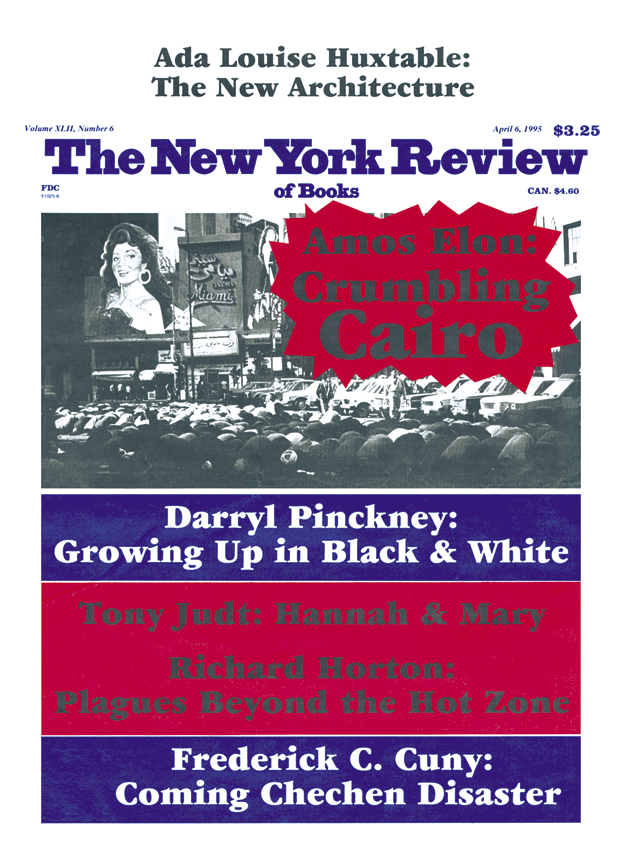In response to:
The Artist at High Tide from the March 2, 1995 issue
To the Editors:
May I add a small bit of information to supplement J.M. Coetzee’s extremely generous and thoughtful review of my Dostoevsky, The Miraculous Years in your pages? Mr. Coetzee suggests [NYR, March 2] that perhaps I accept the Diary of Anna Dostoevsky too much at face value, and compares it with the situation at the Tolstoys, where each spouse wrote his/her diary knowing it would be scrutinized by the other. Anna Dostoevsky peeked at her husband’s letters in his absence, but she was certain that he could not read her diary.
The reason, quite simply, is that she kept it in shorthand, and only transcribed it into readable Russian in the 1890s after his death and as a preparation for writing her memoirs. But she dropped the task before all her notebooks were made legible. One of those left over contained her Geneva diary, which was published only in 1973 (Literaturnoe Nasledtsvo, No. 86). Deciphering her shorthand was a very difficult task, even for the stenographic expert, Ts. M. Poshemanskoi, who studied the system of her teacher; but Anna had added little crotchets and curves of her own. Her code was cracked only after her original shorthand manuscript was compared with her transcriptions. (See LN, p. 150.)
Joseph Frank
Department of Slavic Languages and Literatures
Stanford University
Stanford, California
This Issue
April 6, 1995


